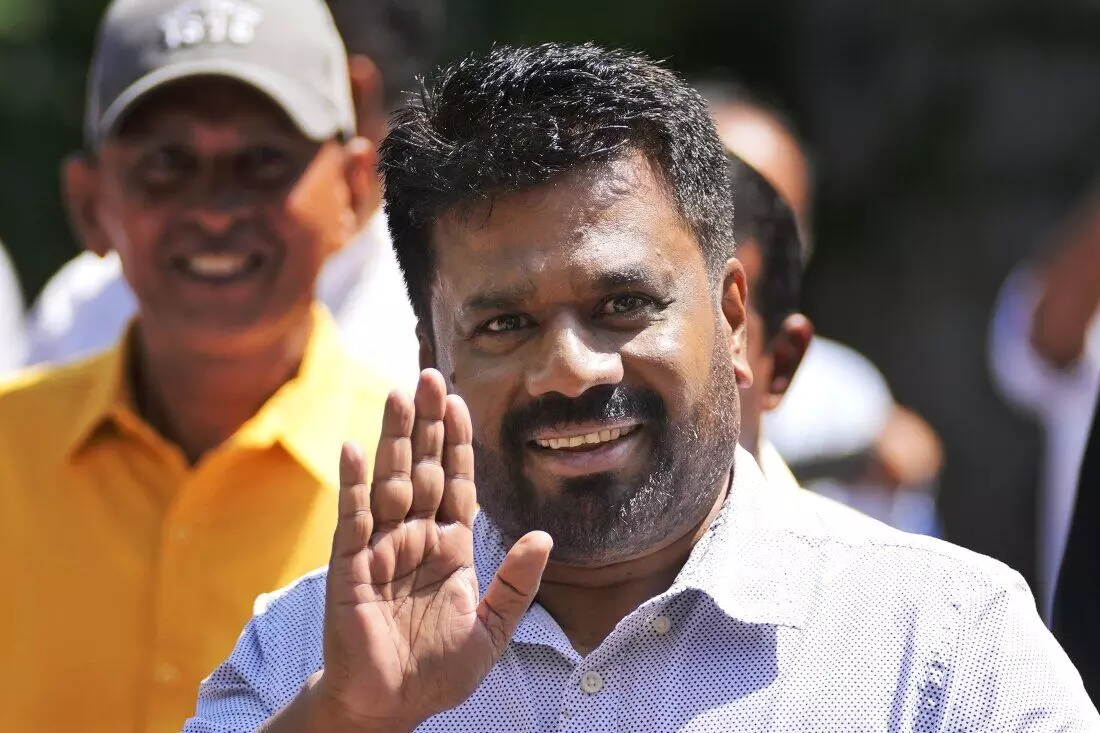A break from the past

In the most closely fought election in Sri Lankan history, stretching to the second round, the 55-year-old left-leaning leader Anura Kumara Dissanayake was elected as the new president. His term is preceded by years of political corruption, economic mismanagement, and civil unrest, which also saw the dramatic ouster of Gotabaya Rajapaksa in 2022. Ranil Wickremesinghe served as the president of Sri Lanka in the intervening period between 2022 and 2024.
Claiming himself to be a disruptor of status quo, Dissanayake has vowed to bring “clean politics” to a system long mired in nepotism and scandal. It is a fact that the Sri Lankan population is yearning for such a transformation. The country’s economic collapse, made worse by the pandemic and decades of fiscal mismanagement, plunged millions into poverty, leading to mass protests against the Rajapaksa regime. It is against such a bleak scenario that Dissanayake's alliance, the National People’s Power, rose to the fore. His message of anti-corruption, economic revival, and political reform resonated deeply with an electorate that had grown weary of the political elite. His victory reflects a wider demand for systemic change, as Sri Lankans seek leaders who can restore both economic stability and trust in governance.
However, the close fight that paved the path for his victory is an indicator that Dissanayake has a large ground to cover to stand erect on the trust of the people. During his swearing-in ceremony, he uttered nice and humble words. He said: "democracy doesn’t end with appointing a leader…we need to strengthen democracy. I pledge to do my utmost to safeguard democracy." Dissanayake has also pledged for the "unity of Sinhalese, Tamils, Muslims and all Sri Lankans” which he feels is the “bedrock of this new beginning". It indeed is. There is no questioning his words; the real test lies in the materialisation of the same. Resurrecting the economy will be a gargantuan task for Dissanayake. With public debt and inflation soaring, the Sri Lankan economy is caught in a tight spot. Essential imports like fuel and medicine have been out of reach for much of the population, and millions are grappling with poverty. The new president has expressed his commitment to rebuilding the nation’s manufacturing, agriculture, and IT sectors, while ensuring that the poorest are shielded from the harshest effects of ongoing austerity measures tied to the International Monetary Fund (IMF) bailout deal.
Apart from economic resurrection, Dissanayake will also have to shed the negative perceptions tied to his Janatha Vimukthi Peramuna (JVP), a left-wing Marxist-Leninist party that led armed agitations in 1971 and 1987-89. He has moderated the party's hard-left stance, presenting a platform centred on good governance and economic recovery. This evolution has allowed Dissanayake to appeal to a broader swath of voters, particularly young people and those disillusioned with traditional political factions. While Dissanayake’s victory marks a break from the past, his presidency comes with its own uncertainties. His political party’s violent past still looms large for many, and there are concerns about whether the JVP is fully prepared to govern. Critics have also raised questions about the party’s internal democratic culture. Moreover, Dissanayake’s foreign policy will be closely watched, especially given the JVP’s historical ties to Marxist movements and its past anti-Indian rhetoric. While Dissanayake has signalled a pragmatic approach to international relations, particularly with India and China, it remains to be seen how he will balance Sri Lanka’s geopolitical interests in an increasingly polarised global landscape.



